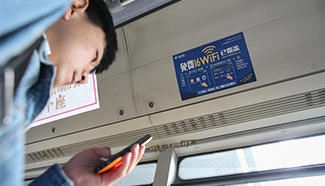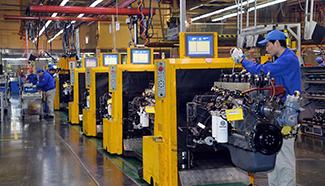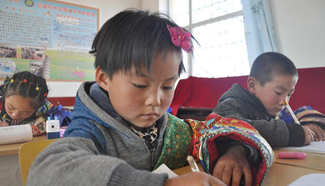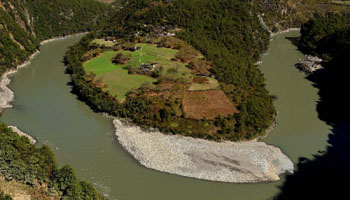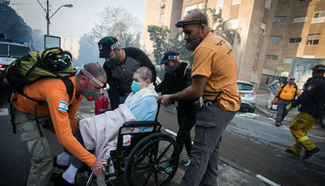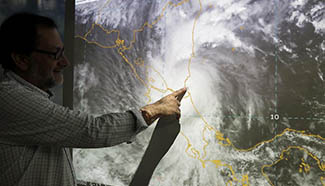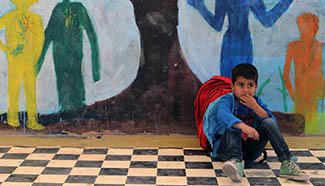SEOUL, Nov. 24 (Xinhua) -- South Korea's ruling political party ranked the third in its approval rating for the first time since President Park Geun-hye took office in February 2013 on public anger at a scandal involving President Park and her longtime confidante.
Approval scores for the Saenuri Party was 16.7 percent this week, down 2.3 percentage points from the previous week, according a poll of 1,519 voters conducted by local pollster Realmeter between Monday and Wednesday.
It was the lowest under the Park administration, keeping a downward trend for eight weeks in a row.
Support for the governing party sank in accordance with President Park's approval rating tumble. The party's division contributed to alienation of voters as seen in former and incumbent lawmakers leaving the party and a heavyweight of the party announcing his plan to join the campaign to impeach the embattled president.
Park's approval rating inched up 0.4 percentage points to 10.1 percent this week, but negative assessment on the president was up 0.2 percentage points to touch the highest of 86.3 percent in about four years in her office.
Approval scores for the biggest opposition Minjoo Party increased from 30.5 percent to 33.4 percent, keeping the first position among political parties.
The Minjoo Party has led the campaign to impeach President Park, vowing to put the impeachment motion to vote in the National Assembly as late as Dec. 9.
The casting-vote wielding opposition People's Party saw its support rate rise from 16.5 percent to 17.9 percent, surpassing the ruling party for the first time since it was launched in early 2016.
Among presidential hopefuls, Lee Jae-myung, mayor of Seongnam city in Gyeonggi province, posted the fastest increase in approval rating among contenders in the presidential election.
Support for Lee advanced from 10.0 percent to 11.6 percent this week, ranking the third for the first time in the Realmeter's survey. It exceeded the scores for Ahn Cheol-soo, former chairman of the People's Party whose approval rating declined from 12.0 percent to 11.4 percent.
Lee began to gain popularity thanks to his differentiated welfare policies in the Seongnam city, and he recently became a rising star among president hopefuls for his active participation in the candlelight vigils to let President Park step down or be impeached. Lee is affiliated with the Minjoo Party.
Moon Jae-in, former chairman of the Minjoo Party, logged his approval rating at 21.2 percent this week, up from 20.4 percent the previous week.
Support for Ban Ki-moon, United Nations Secretary General, fell from 18.1 percent to 17.4 percent on public sentiment that Ban had supported President Park before.
Ban has never announced his clear intention to run for presidency, but he has been viewed here as one of presidential hopefuls. His tenure at the United Nations is scheduled to end this year.




